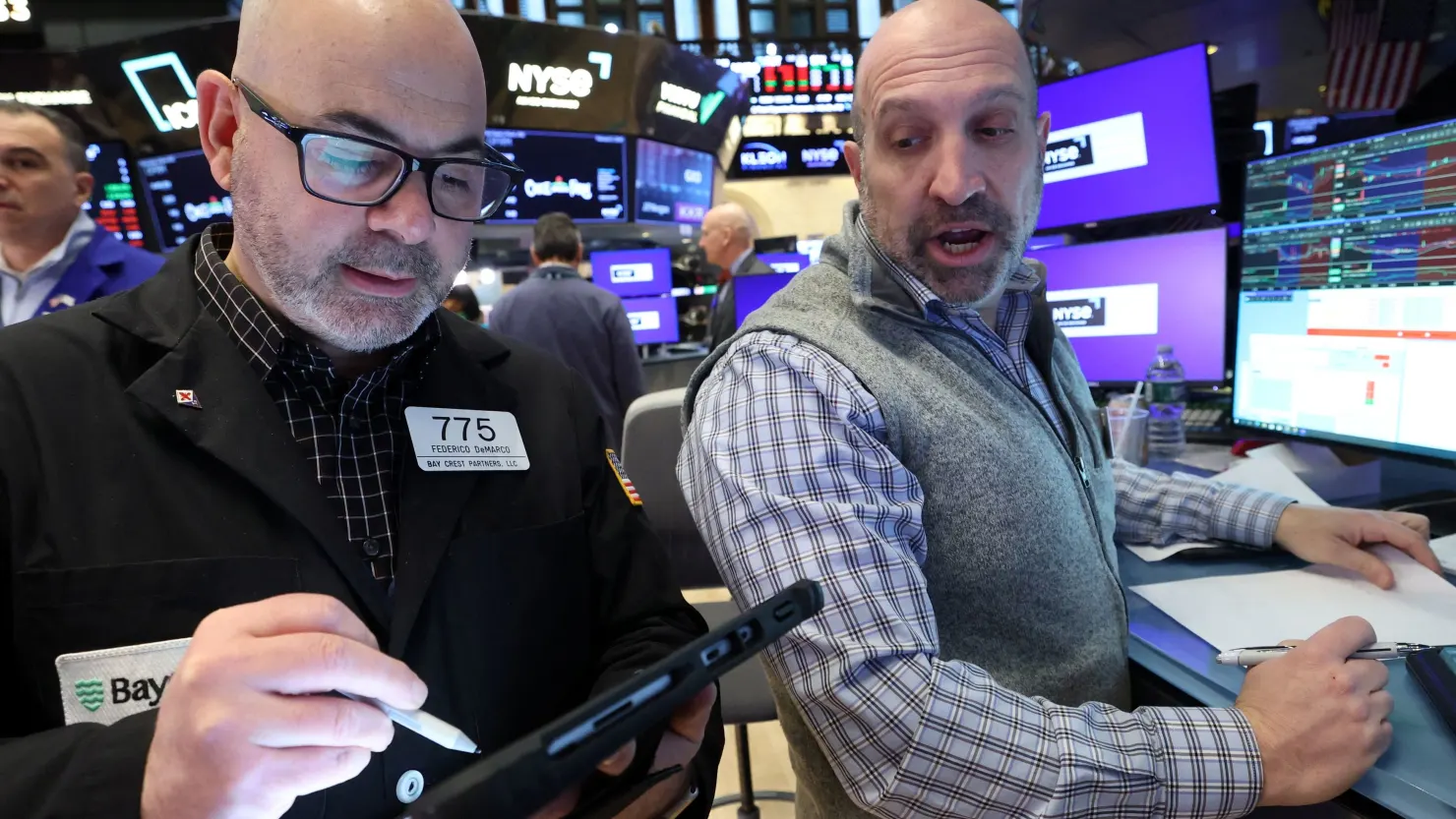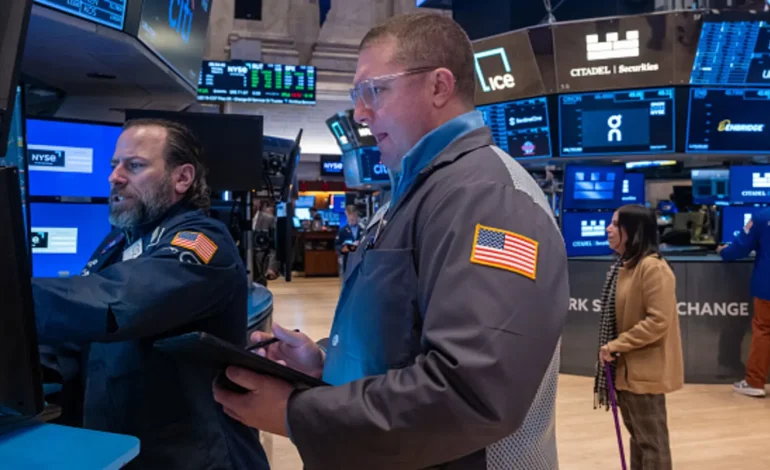US stock futures declined on Tuesday following a sharp sell-off on Wall Street, as new tariffs imposed by President Donald Trump on Canada, Mexico, and China came into effect.
The move prompted retaliatory measures from the affected countries, fueling market uncertainty.
Futures tied to major indices reflected investor concerns:
- Dow Jones Industrial Average futures slipped 79 points (0.2%).
- S&P 500 futures dropped 0.3%.
- Nasdaq 100 futures dipped 0.2%.
On Monday, the S&P 500 recorded its biggest single-day drop since December, falling 1.8%. The Dow Jones Industrial Average declined by 649.67 points (1.5%), while the Nasdaq Composite dropped 2.64%.
The market downturn followed Trump’s confirmation that 25% tariffs on imports from Canada and Mexico had taken effect, with no further negotiations planned. Additionally, the administration increased tariffs on Chinese goods by 10%.
In response:
- China imposed up to 15% additional tariffs on U.S. goods.
- Canada announced a 25% levy on select American imports.
Several companies, particularly in the automotive and technology sectors, experienced declines in premarket trading:
- General Motors (GM) and Ford saw their stocks fall, reflecting broader concerns about tariff-related disruptions.
- Nvidia shares dropped another 3%, extending a 9% decline from the previous day due to fears of export restrictions affecting its business in China.
- Tesla stock fell 3% after data showed a nearly 50% drop in sales of its China-made vehicles in February.
Scott Ladner, Chief Investment Officer at Horizon Investments, suggested that the market may not see a quick recovery.
“Sentiment is really low, and reversing from this point could be a slow process,” he told CNBC.
However, he pointed out that the US economy remains strong, with corporate earnings still growing at a rate of 10-15%.
“There’s no indication of an economic recession or even an earnings recession,” he added.
- Bitcoin dropped 2%, falling below the $85,000 level, erasing gains it made after Trump’s recent announcement about a U.S. crypto reserve.
- The CBOE Volatility Index (VIX), often referred to as Wall Street’s “fear gauge,” rose sharply as investors reacted to the uncertainty surrounding trade policies.
Stock markets around the world were also affected:
- European markets saw widespread losses, with Germany’s DAX down 1.5%, France’s CAC 40 nearly 1% lower, and the UK’s FTSE 100 falling 0.66%.
- Japan’s Nikkei 225 led declines in Asia, dropping 1.2%, while South Korea’s Kospi fell 0.15%.










The latest news in your social feeds
Subscribe to our social media platforms to stay tuned